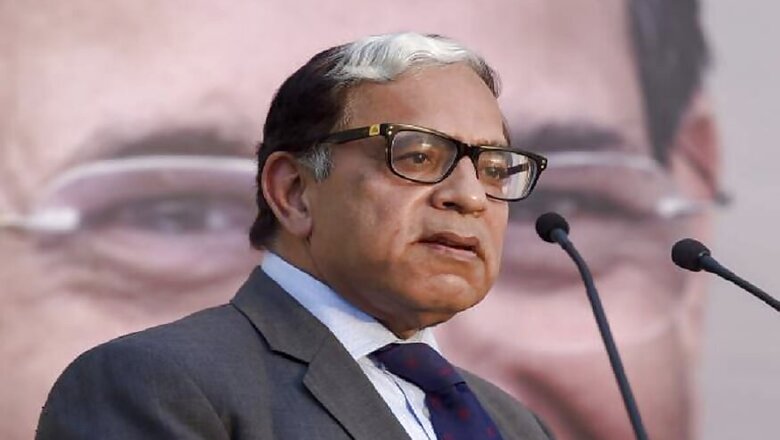
views
New Delhi: There is a need to improve the collegium system of appointment of judges, former Supreme Court judge Justice AK Sikri said on Friday while stressing on the requirement of judicial reforms in the country.
Justice Sikri, who is currently international judge of the Singapore international commercial court, said that around 30 million cases are pending in courts across the country and the executive and the judiciary are equally responsible for delay in appointments of judges.
"There has to be some hybrid system. More than that we have to improve our collegium system because on many times only on impression about a particular person in the high court there is a deadlock or stalemate... This needs to be corrected," Justice Sikri said at the inauguration function of Cornell India Law Center.
Justice Sikri also said that appointments by the collegium were not made while the National Judicial Appointments Commission was pending in the Supreme Court as there were doubts as to under which law the appointments be made.
Commenting on the need of judicial reforms, Justice Sikri said there has to be efficient management of courts and tribunals and need to reduce the cost of adjudication along with alternate dispute resolution like mediation.
Senior Advocate and Member of Parliament Abhishek Manu Singhvi, who delivered lecture on 'Transforming India's Justice System', said there is an urgent need to make appointments in judiciary and improve the infrastructure of courts.
"Mammoth number of cases pending in courts should not be seen as a deterrent as they are meaningless numbers. There has to be a holistic approach which is not piecemeal," he said.
Outlining a series of urgent reforms needed in the Indian Justice system, Singhvi suggested creation of separate monitoring cell in the top court for filling up the vacant posts in the judiciary. Justice Gita Mittal, Chief Justice Of Jammu and Kashmir High Court, was also present on the occasion.
Founding Vice Chancellor of OP Jindal Global University Prof. Raj Kumar also spoke on the occasion and said there are significant issues on rule of law which challenge the democracy and society.
"The Jindal Global Law School has been collaborating with the Cornell Law School and has implemented many forms of collaboration over the past one decade. Students and faculty members from both sides immensely benefitted from this mutually beneficial academic collaboration. The establishment of Cornell India Law Centre and proposed comparative study of Indian Law will prove very useful," Kumar said.
Sital Kalantry faculty director of the Center, Clinical Professor of Law, who delivered the welcome address on the occasion, said democracy today is being pushed to the brink and judiciary is the only defence.




















Comments
0 comment